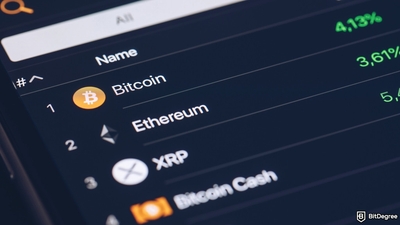Free Airdrop Season 7 is LIVE! Answer fun questions or do simple tasks to earn rewards from the $30K BitDegree prize pool. Participate Now ! 🔥
Judge Sides with US SEC in Securities Classification
Key Takeaways
- Judge Tana Lin's ruling supports the SEC's view that secondary crypto sales are securities, impacting industry regulation.
- The court partially granted the SEC's request for a default judgment against Ramani.
- The decision ignites debate on defining investment contracts and securities, highlighting regulatory challenges and legal interpretations in crypto.
Judge Tana Lin of the US District Court of Western Washington in Seattle has handed down a ruling in a case involving alleged insider trading at Coinbase.
This judgment marks a crucial moment, as it supports the US Securities and Exchange Commission's (SEC) classification of secondary crypto sales as securities.

Did you know?
Subscribe - We publish new crypto explainer videos every week!
What is Web3? (Animated Explanation + Examples)


At the heart of the case is Sameer Ramani, alongside former Coinbase product manager Ishan Wahi and others, accused of benefiting from confidential information about upcoming token listings on Coinbase.
Judge Lin granted the SEC's request for a default judgment against Ramani, who is believed to have left the United States and failed to respond to court summonses. The judgment includes a permanent injunction, civil penalties, and the return of ill-gotten gains, although it stops short of imposing prejudgment interest.
Judge Lin's decision further cements the SEC's stance that certain crypto tokens can be classified as securities, a declaration that could have far-reaching implications for the industry.
This classification is based on the premise that these tokens were sold as part of investment contracts. The order states:
The tokens Ramani traded were offered and sold as investment contracts and, thus, were securities.
This matter has been central to intense debate within the crypto community. Patrick Daugherty, head of Foley & Lardner's digital assets practice, critiqued Lin's interpretation of the case, suggesting it ignores crucial elements of an investment contract.
Coinbase's chief legal officer, Paul Grewal, echoed this sentiment, highlighting the challenge of contesting the SEC's claims in such legal contexts.
This case has unfolded alongside the guilty pleas of Ishan Wahi and his brother Nikhil, who have been sentenced to prison terms for their roles in the insider trading activities.
This ruling not only highlights the ongoing debate over the classification of crypto but also signals a more assertive stance by regulatory bodies in policing the digital asset space.
The SEC's interpretation of digital assets as securities has also been discussed amid the lawsuit against Kraken. Several state attorneys general have accused the SEC of exceeding its regulatory authority, highlighting that this could preempt more protective state regulations around crypto.























